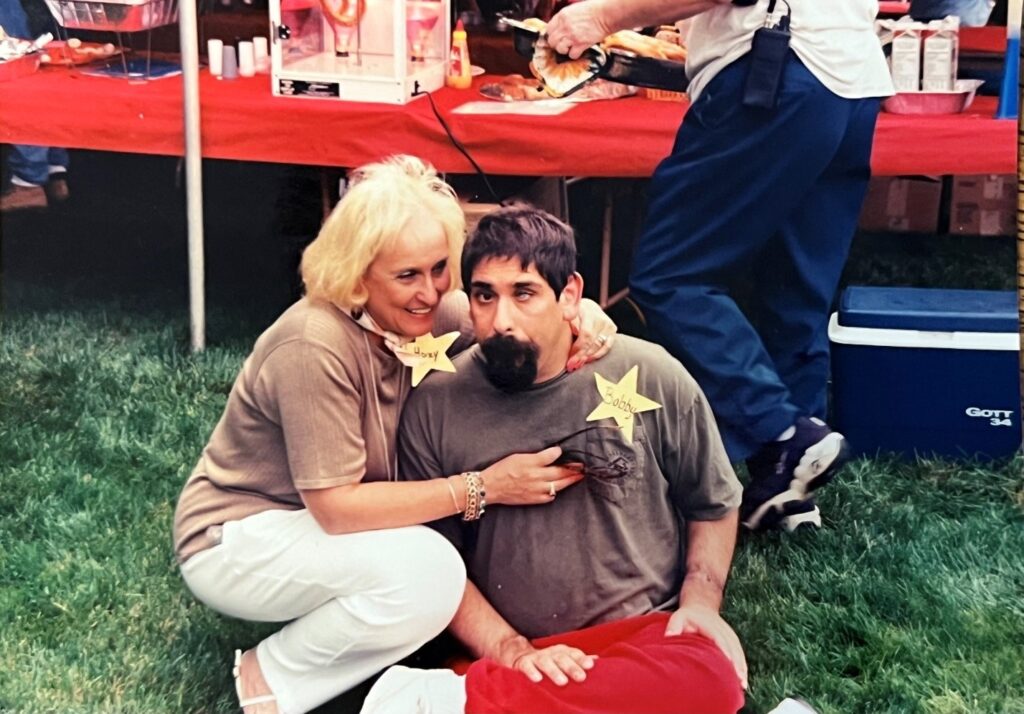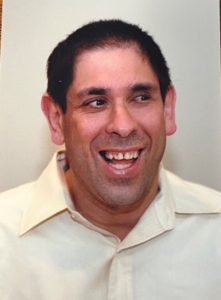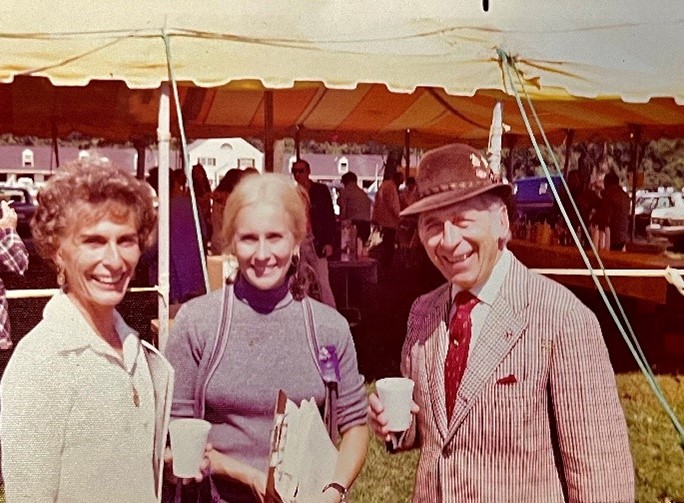Looking Back on Our Legacy: How Pioneering Parents Transformed Disability Care on Long Island
 Citizens Options Unlimited wouldn’t be where it is today without the devotion and support of those that came before us — the agency’s original founders, board members, and countless mothers and fathers who advocated for change at a time when disability services did not exist.
Citizens Options Unlimited wouldn’t be where it is today without the devotion and support of those that came before us — the agency’s original founders, board members, and countless mothers and fathers who advocated for change at a time when disability services did not exist.
“A lot of our parents were pioneers in disability care and opening Helen Kaplan,” said Marta Garavito, Citizens Options Unlimited Director of Helen Kaplan Intermediate Care Facilities (ICF).
One of these pioneers was the late, great parent advocate Honey Franklin, who organized several charity initiatives, ranging from equestrian events to a celebrity cookbook, to bolster the agency supporting her son, Bobby Franklin.
For nearly 40 years, Bobby has lived in Helen Kaplan ICF in Plainview, one of the first ICF campuses to open on Long Island.
“Bobby is very active and has a sense of humor,” Marta said. “He loves to eat and despite vision issues, can always find his way to the fridge for a late-night snack.”
While Bobby is leading the life his mom helped forge, the journey to Helen Kaplan began for the Franklin family as it did for many families in the 60s and 70s.
Disability care has changed tremendously over the past several decades
“It was hard back then because people just didn’t understand disability like they do now,” recalled Penny Franklin, Bobby’s sister.
When Bobby was a young boy, Honey hired a live-in nurse named Maybell Campbell. Back then, it was common for caretakers, predominantly women, to come up from the South to work. Maybell was in her fifties when she first left South Carolina to come care for Bobby. She kept visiting Bobby at Helen Kaplan until she passed in the late 1990s.
As a child in the late 70s and early 80s, Bobby lived at the Long Island Developmental Center (LIDC) in Melville, formerly known as the Suffolk State School.
The state institution accommodated 2,300 to 3,000 youth with an intellectual or developmental disability (I/DD) until they were 19 years of age. The residents came from across New York City and Long Island, according to a January 16, 1958 article from The Long-Islander.
“Parents were told it’s best to give up your kid to institutions,” Marta said. “In that era, people listened to their doctors.”
Eventually, institutions across the state began to close down. LIDC closed in 1990 to settle two lawsuits; the first class-action suit was issued in 1978 by a parent group because the center “had not provided adequate housing, clothing, sanitary conditions, and training programs.”
“There weren’t schools or day programs or respite like there are nowadays,” Inez McDannell, Supervising QIDP/Helen Kaplan, said. “Families just didn’t have the ability to care for their children at home.”
The state facility agreed to move all residents into homes supporting smaller groups. The times began to change, and group homes or Individual Residential Alternatives (IRAs) and ICFs like Helen Kaplan began to slowly appear across the country. The majority of LIDC residents moved into Helen Kaplan.
“Bobby came in around the same time as people from Willowbrook,” Penny said.
Willowbrook was a state-supported institution for children with I/DD located on Staten Island. In 1972, television journalist Geraldo Rivera exposed the stories of neglect and abuse in a WABC-TV documentary. Willowbrook closed its doors for good in 1988.
“The closure came after years of public outcry over the deplorable conditions at Willowbrook and the treatment of the people who resided there,” according to New York State’s Office for People with Developmental Disabilities (OPWDD). “It forever changed the way society viewed people with developmental disabilities and sparked a movement to reform service delivery systems and recognize the unalienable civil rights for people with developmental disabilities.”
Many of the people who lived in LIDC and Willowbrook still live at Helen Kaplan today.
Helen Kaplan has some of the highest standards in ICF care across the state, Marta said, and almost always passes its state audits citation free. Since ICFs are funded by the state, they are audited by OPWDD.
How FXS impacted Bobby
Developmental delays as well as social and behavioral challenges are common in FXS diagnoses. People with FXS may have difficulty with talking, learning, memory, abstract thinking, problem solving, and planning.
FXS also may lead to higher risks for other health conditions like epilepsy, ear infections, difficulty sleeping, gastrointestinal issues, and vision problems.
For Bobby, this includes a neurodegenerative eye condition that gradually impacted his eyesight. For the past 12 years, he has been legally blind in both eyes.
Familiarity from living in the same home environment for over 30 years is a real benefit, as he can feel his way around, always knowing how to lead a staff member to the front door. He loves a good long walk with his favorite DSP Edward.
 FXS has several common comorbid conditions including learning disorders, autism spectrum disorder, cognitive disorders like attention-deficit/hyperactivity disorder (ADHD), and mental health disorders like anxiety and depression.
FXS has several common comorbid conditions including learning disorders, autism spectrum disorder, cognitive disorders like attention-deficit/hyperactivity disorder (ADHD), and mental health disorders like anxiety and depression.
Bobby has anxiety and hyperactivity, which requires medication. The occasional new roommate used to upset and confuse Bobby. However, with verbal reminders and preparation, Bobby has settled into accepting change.
He’s mellowed out over the years, both Marta and Penny agreed. Since Honey’s passing, Penny has been unable to visit Bobby. She hopes to visit this summer with her aunt.
“He’s in a really good place now,” said Penny.
How a diagnosis changed everything
In the early 90s, genetic testing technologies progressed to identify the specific gene associated with Fragile X syndrome, FMR1, according to FragileX.org.
Honey took her two children to a doctor in Manhattan, where Penny received a late FXS diagnosis. The family found out that Fragile X runs on their father Jay’s side of the family.
FXS most commonly impacts men, with women usually having milder symptoms.
After receiving this diagnosis, everything clicked for Penny. Since childhood, she had always had hand-eye coordination and visual depth perception problems. She never got a driver’s license.
She was sensitive to medications, had bouts of anxiety and depression, and had dyslexia — always having difficulty in English and math class.
“It’s frustrating to think that maybe I wouldn’t have been left back in school or had as many problems. I could have had a totally different life, but we didn’t have the resources,” Penny said. “Back then, we had nothing.”
Penny lived with Honey all her life. She never moved out, got married, or had children. After her mother’s passing, Penny moved into a 55-and-up community near her relatives.
“Who would have thought I’d be starting an independent life at the age of 66?” Penny said.
While she is starting a new life with her poodle in Connecticut, Penny said she has a few final things to take care of on Long Island.
The Citizens Options Unlimited Guardianship Department is currently in the process of overseeing Bobby’s care, making sure to include his sister Penny in all Life Plan meetings and medical updates. Penny is also currently working on getting an engraved plaque at the AHRC Nassau Brookville mansion in honor of her late mother. She was so grateful to share her mother’s legacy.
 Honey’s most notable event was the 1975 Nassau Chapter of AHRC Grand Prix at CW Post University, now known as Long Island University (LIU Post). She organized TV advertisements, thanks to connections with executive producer Larry Gershman. She landed sponsored brands for the event, like Anheuser-Busch, parent company of Budweiser Beer. The event raised over $45,000. If adjusted for inflation, the event raised around $460,000.
Honey’s most notable event was the 1975 Nassau Chapter of AHRC Grand Prix at CW Post University, now known as Long Island University (LIU Post). She organized TV advertisements, thanks to connections with executive producer Larry Gershman. She landed sponsored brands for the event, like Anheuser-Busch, parent company of Budweiser Beer. The event raised over $45,000. If adjusted for inflation, the event raised around $460,000.
In 1972, Honey also organized and published a celebrity cookbook, which includes recipes from the likes of Barbra Streisand.
When asked to describe Honey, “classy” was one of the first words used by multiple people interviewed for this article. Honey was known as a kind and humble woman, with a vast network of connections across the state and nation, due to her career in advertising as a production director. She was even personal friends with Helen Kaplan, a founding member of AHRC Nassau and its first executive director. The ICF was named in her honor.
“She’d do anything for anybody. She loved the organization, and she loved her children,” Penny said. “I wanted to do something for her. She deserves it so much. I want to honor her legacy.”
